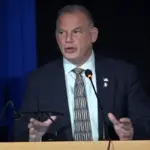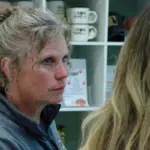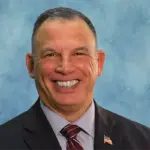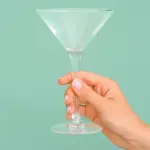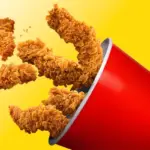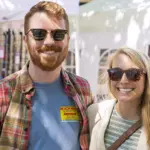by Amanda Milewski, photography by Nikola Tzenov
In a year that featured bad news on top of bad news followed by more bad news, we all yearned for whatever good news we could find to alleviate the prevailing doom and gloom. Although they sometimes seemed few and far between, those bright spots were out there — not only grand gestures of selflessness but also little acts of kindness. Sometimes you just had to be open to seeing them.
“Those kinds of things happen all the time in Carroll County,” said Audrey Cimino, recently retired as head of the Community Foundation of Carroll County, which she also founded. The foundation improves the lives of county residents by managing more than 300 local funds and scholarships.
Sometimes the opportunity to help someone is just a matter of being in the right place at the right time, Cimino said. And those charitable acts — no matter how small — can have a ripple effect. “When someone does something nice for you,” Cimino said, “you are more inclined to do something nice for someone else. All we have to do is recognize those opportunities and act on them.”

The Drive to Help
This has been a difficult year for everyone. But for New Windsor residents Mike and Holly Hess, the pandemic paled when they received the news in August that their 3½-year-old son Brantley has B-cell acute lymphoblastic leukemia.
He is currently undergoing chemotherapy, traveling to Johns Hopkins at least once a week. His treatment will be 2½ to 3 years long, with each phase being different.
He spent a month in the hospital when his chemotherapy began because he became very sick with kidney stones that were too large for him to pass naturally. He underwent emergency surgery to implant stents and then had an additional surgery in October to break up the kidney stones.
So she could better focus on caring for Brantley as well as 6½-year-old Makayla, Holly quit her job as an oral surgeon’s assistant. Mike is a full-time lieutenant with the Westminster Fire Department, a part-time engineer at the Union Bridge Fire Department and a volunteer with the Reese Fire Department. Between Mike’s commutes and Holly’s travel to and from Hopkins, reliable transportation was critical.
“The car my husband drove back and forth to work was pretty unreliable,” Holly said. “My car is an SUV and a gas guzzler, so driving back and forth to Baltimore was getting pretty pricey.”
Through Holly’s friend and co-worker, Tina Hartlaub, who also is friends with Anthony Birdsong, owner of Hampstead Pre-Owned, the Hesses had hoped to get a deal on a more reliable car.
“Tina told me about the Hesses’ situation and that they were hoping to get a good deal on a car,” Birdsong said. “After I learned about what they are going through, I decided to give them a car as well as $500 in gas money.”
Birdsong explained that Hampstead Pre-Owned routinely gives away cars, including one to a Carroll County student every year. “There’s nothing in the world that makes you feel better than giving back to people in the community,” he said.
“This helps us out so much,” Holly said. “We will be forever grateful!”
In addition to Hampstead Pre-Owned, other businesses and organizations have stepped up to help. When Brantley came home from the hospital, the Westminster, Union Bridge and Reese fire departments organized a huge parade in his honor. When Local Homestead Products in New Windsor found out that Brantley’s favorite holiday is Halloween and that he was going to miss picking a pumpkin because he can’t be around crowds, they invited the family to pick pumpkins on a day they were closed to the public. “The owners there are really incredible people!” exclaimed Holly.
“Our fire department families have been wonderful,” she said, “with bringing us meals and sending gift cards for gas and meals. It is truly amazing the community we live in. Along with our family, we have some of the best friends in the world who have gone above and beyond for us! We are so thankful for all the love, support and prayers.”

Running to Help
As the owners of running specialty store TriSport Junction on Main Street in Sykesville, of course Donna Larkin and Jane Linde’s days involve all things running. In addition to operating the store, they also organize weekly runs and walks that use the store as home base as well as a number of local road races.
Linde is also vice president of Eldersburg Rogue Runners (ERR), a local running group founded in 2003 to support local runners in their training.
When Francis Moats joined ERR in 2013 — because he became winded walking to his tree stand and knew he needed to get in shape — he quickly became an integral part of the organization and a regular participant in the “5 at 5 group” which runs together at 5 a.m.
While training for the Marine Corps Marathon, which happened virtually on Oct. 25, Moats began experiencing unusual headaches. Doctors found an untreatable and aggressive gliobastoma, a type of brain cancer that has robbed him of his ability to walk, let alone run.
Enter Larkin, Linde and fellow 5 at 5’er Heidi Shoemaker Burnett, who had an idea for a way for Moats to earn that Marine Corps Marathon medal for which he had been training so hard.
With just three days of planning, Linde, Larkin and Burnett put together a local marathon run — not a race — which included the director of the Marine Corps Marathon presenting Moats with a finisher’s medal at the end.
Burnett and Larkin ran the full 26.2 marathon distance, a first for Larkin and without any specific marathon training. Burnett, who completed the Marine Corps Marathon last year, started her run at 2:45 a.m. because she needed to be available to help volunteers and organizers during the event. Six other runners ran the full marathon while more than 50 other participants ran or biked some part of the run. Linde logged 15 miles despite an injury, noting that Moats’ strength kept her going.
Due to his sensitivity to light, movement and sound, Moats was pushed in a jogging stroller for the last two miles of the run, which, as long as someone else had run the full marathon distance, was enough for him to earn that finisher’s medal.
“That was a moment I will never forget,” said Burnett. “I am forever grateful to each and every person who contributed to that special day. [Francis] is a great training partner. He is always thinking about others. He would have done this for any of us.”
Larkin explained that whether it’s the Marine Corps Marathon or another race, “Almost anytime anyone involved with ERR is competing, either virtually or in person, they carry a picture of Francis with them so he is being honored continuously.”
Moats’ caring and kindness toward others as well as his strength and determination continue to inspire his ERR friends to keep on running even when he cannot.
We are sad to report that Francis Moats passed away in early November.

The Strength of a Student
Winters Mill high school senior Diana Flores likes to point out that everyone has mental health but not everyone has mental illness.
Flores is one of the original members of the school’s Falcons of Strength (FOS) organization, part of the national Sources of Strength program which, according to their website, provides suicide, violence, bullying and substance-abuse prevention by training youth leaders and their adult advisors.
The national office of Sources of Strength provided the first training for the Winters Mill chapter in 2018.
Flores says that she became involved with Falcons of Strength because she wanted to “become an advocate for something that you see up close and personal every single day.” She understands the importance of peer connections for those who might be struggling with mental health issues. Those peer connections can then lead to adult connections, which can be critical, especially during a mental health crisis.
As an executive board member, one of her many tasks is maintaining the organization’s social media sites, on which she keeps fellow students abreast of FOS updates as well as provides activities, resources and challenges aimed to create and maintain those ever-important connections even if they had to be virtual for a time.
Flores believes FOS is making an impact with her Winters Mill schoolmates about the perception and stigma of mental illness. “Every time we have an activity, the entire school community gets involved,” Flores said. In addition to the work of the students, staff and faculty also volunteer their time.
Although there were many planned activities that didn’t happen last year because of the school closure, Flores and FOS members have pivoted to more virtual activities for those who may not be able to return to the building even with schools open. Part of those virtual activities includes utilizing a subscription to Headspace gifted by NBC’s Today when they featured Flores and her fellow FOS members on the program. Headspace is an online meditation/mindfulness platform that provides users with a wide variety of resources focused on improving mental health.
Flores also advocates for Sources of Strength chapters to be established in other Carroll County schools. She advised like-minded students to focus on creating a strong foundation for the Sources of Strength group first before engaging with the rest of the school.
Once the organization’s foundation is in place, then outreach to the student body can begin, said Flores. FOS isn’t in the business of counseling students but in providing resources and coping skills and fostering peer-to-peer and peer-to-adult connections.
In addition to appearing on Today, Flores also was named 2020 Student Champion of the Year by the Children’s Mental Health Matters! Campaign. She could rest on her laurels, but that isn’t her style. Although she affirmed that FOS has done an amazing job to improve that way mental illness is perceived, “It is never-ending,” she acknowledged, “there is still work to be done.”

A Major Donation
Typically, you can count on family and friends to have your back. In the case of Mt. Airy resident Nicole Kettula, they not only had her back but one of them also had her kidney, too.
In 2013, when she was in her mid-30s, Kettula was diagnosed with polycystic kidney disease. There is no known cure, two treatment options — dialysis or transplant — and only one medication, recently approved by the FDA, that slows the progression of the disease.
Kettula was prescribed the medication, which staved off the need for dialysis by a year. When the medication stopped working, she started at-home dialysis in 2019. She was hooked up to the dialysis machine for eight hours overnight. “This was the best option for me,” she explained, “because I was still able to do my daily activities with no interruption.”
Despite the relative ease of dialysis, Kettula always knew that at some point she would need a transplant. “When I was diagnosed, my doctor told me that I would lose complete kidney function around age 50. My kidneys continued to get worse, and I ended up needing a transplant at 46 years old.”
Kettula was added to the transplant list, which people can spend years on until a suitable match is found. Luckily, Kettula’s older brother was a match and the process of evaluating him for the surgery began. On his initial CAT scan however, doctors saw something concerning and ordered another CAT scan in six months. With repeated testing and necessary appointments, the surgery took about a year to schedule.
And then the pandemic hit and transplant surgeries were put on hold. In May, Kettula’s transplant team gave her the go-ahead to complete her health screening in anticipation that the surgery would be a go. It took place on Aug. 4 at the Hospital of the University of Pennsylvania in Philadelphia.
Both Kettula and her brother, Bill Holweg, are recuperating well. Her brother had to quarantine for three to four weeks, and Kettula is quarantining as much as possible since she is on immunosuppressants.
“My brother is a hero for donating his kidney,” said Kettula. “His kidney essentially saved and absolutely extended and changed the quality of my life.”
“I am not a hero,” countered Holweg. “She didn’t deserve to suffer any longer and I was able to help. Life is precious and too short, so if you can help someone, why not?”
Many of Kettula’s friends and extended family share that sentiment.
“We don’t have family living in this area,” Kettula said. “One dear friend created a meal train that fed my family of four for a whole month!” While Kettula and her husband were in Philadelphia for the surgery, their teenage children quarantined at home. “So many friends made them a meal or gave them gift cards for food. We live in a great community. The love and support we received was a huge blessing.”

The Fabric of Community
Like businesses that pivoted to making hand sanitizers, parts for ventilators and face shields during the pandemic, a local mother-daughter duo pivoted from quilting to sewing face masks.
To date, Liberty High School senior Emma Bauer and her mother, Tracey, have made 250 masks, including 100 for Lynchburg College, Tracey’s alma mater. Although requests for masks have slowed a bit, they are still taking orders, especially for holiday-themed designs.
Sewing is not the first thing that springs to mind when wondering what high schoolers do in their free time.
But Emma and her sister Grace were taught to sew at a young age by a neighbor and expert seamstress, Jane Tegeler, who watched the girls in the morning after Tracey left for work and before school started. “Jane is an amazing and patient seamstress,” said Bauer. “She deserves all the credit here.”
As a newborn, Emma spent time in the neonatal intensive care unit (NICU) at Howard County General Hospital, where fragile infants were given handmade quilts, so learning to quilt was a natural extension of sewing for her. In fact, Emma is an expert quilter herself, and making quilts for NICUs became her Girl Scout Gold Award Project, which, when COVID hit, was put on hold because she wasn’t able to hold the community quilting demonstrations that were part of the Gold Award requirements.
That’s when she and her mom switched over to mask making. Friends knew that they could sew, so many of them, including some essential workers, requested masks. Tegeler provided a pattern and a few prototypes. Then they made masks for anyone and everyone who asked. In addition to the 100 masks for Lynchburg College, they made more than 30 masks for a family-owned gelato business in Connecticut and 117 masks for family and friends.
“We used fabric originally earmarked for the NICU quilts for the fronts and donated bed sheets for the backs because the sheets’ higher thread count is softer against the skin,” Bauer said.
Although COVID changed the timeline for Emma’s Gold Award, it didn’t stop the quilt-making process. In fact, some local quilters who heard about Emma’s project helped make quilts when they weren’t making masks. More than 27 different quilters — members of the Faithful Circle Quilters Guild, Village Quilters and Four County Quilters Guild — scontributed to the quilt-making. So much so that Emma’s original commitment of making 100 quilts doubled. Her quilts now total 170 and she hopes to get to 200 by the time they are permitted to deliver them to local hospitals.
Emma will receive the Girl Scout Gold Award at a ceremony in March. Fewer than 6 percent of Girl Scouts nationwide earn the award and about 1 million have earned it since its inception in 1916.
Whether their talents are devoted to tiny babies or essential employees, the Bauers have it covered.








